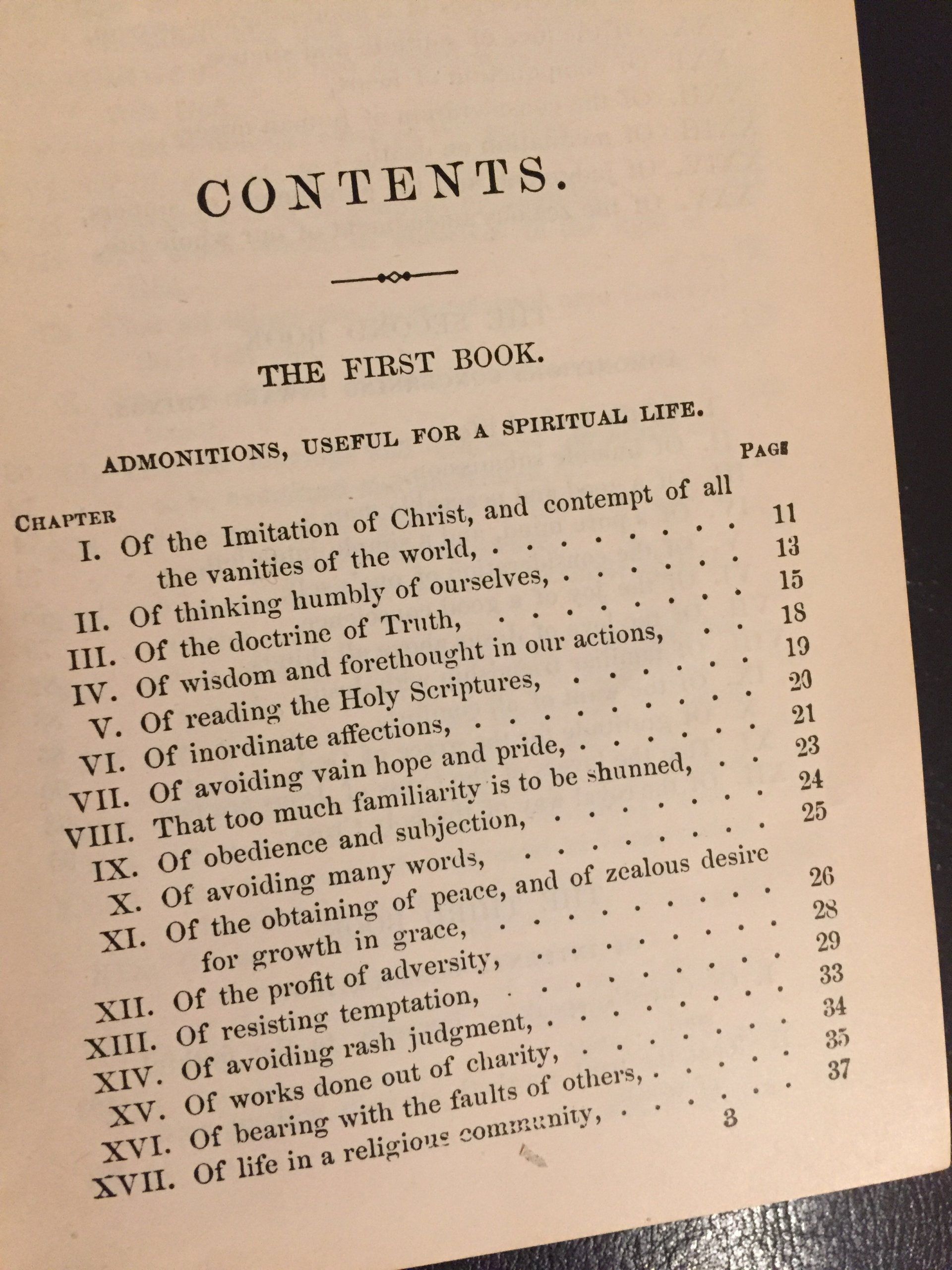The Imitation of Christ
Michael Kroth • January 25, 2020
The Imitation Of Christ – Practices for Daily Living

“If thou thinkest that thou understandest and knowest much;
Yet know that there are many more things which thou knowest not.”
~Thomas à Kempis, The Imitation of Christ, The John C. Winston Co., p. 14*
A few years ago, Bryan Taylor invited me to a men’s retreat at Mount Angel Abbey, located just a hike from Mt. Angel, Oregon. Though I had taken personal retreats in a Catholic monastery
before, I’d never been to Mt. Angel, which is monastery, seminary, bookstore, and – when I went – a brewery that wasn’t operating (it is now). And I, a lifelong Methodist, had certainly never been to a Catholic men’s retreat.
I did not know what to expect.
Turns out, I had a life changing experience for more than one reason.
One of those reasons occurred at the Mount Angel Library. Readers of Profound Living
will not be surprised that I hied myself there as soon as I had the opportunity. As one who becomes immersed in a bookstore or library, time flew. Just as my break time was expiring, I spotted the used-books-for-sale section.
Well…
As I was roaming this treasure trove, Bryan happened by. He pointed out a little, beat up copy of The Imitation of Christ
and told me it was one of the most-read devotional books in the world. The price was right – I think it was fifty cents, but it might have been a dollar – and I took it with me.
That evening, it is honest to say, my life changed. Now, the way I live my life is taking a heck of a lot longer to change, but a new path heading in directions I had been wanting to go decisively opened up before me.
For years, I struggled with organized religion. That story is for another essay(s), but I was looking for something that led to becoming a deeper, better person and to living a more meaningful life. Something much more internal and transforming than “I believe” statements. I needed to find the “Here’s how you become….” part.
That night, I opened my little book, and read about humility. I also read “This must be our business, to strive to overcome ourselves, and daily to gain strength over ourselves, and to grow better and better” (p. 5). That is when, not in so many words perhaps, I began to think more about the contemplative “practices” had been reading about (see Richard Rohr, Thomas Merton, Thich Nhất Hạnh). And I began to additionally think about “imitating
Christ”. What would it mean work toward the humility, gratitude, courage of conviction, and other qualities that Christ not only spoke of, but emulated? Knowing that one could never reach perfection, not even by a long shot.
“Working toward” translates, for me, into daily and regular “practices” leading to becoming a more generous, grateful, humble, caring, contributing person over time. Over a life time.
That night, with my window open in my little Mt. Angel Abbey guesthouse room, I sat listening to sheep bleating outside. How marvelous, I thought!
Right there, just as I had fallen in love with Richard Rohr’s The Naked Now
and Thich Nhất Hạnh’s Peace Is Every Step, here and now I also fell in love with The Imitation of Christ.
The way to move forward was becoming more clear.
Life changing, these gifts. Peace Is Every Step.
----------------------------------------------------------------------
*This quotation is from the book I purchased used at the Mt. Angel library. Because this book is falling apart I do not want to handle it much, so the rest of the quotations in this essay will be from my 2013 Tan Books version.
Resources
Read about the Mt. Angel Library here.
References
à Kempis, T. (2013). The Imitation of Christ
(R. Challoner, Trans.). Charlotte, N.C.: Tan Books & Pub.
Hạnh, T. N. (1991). Peace is every step: the path of mindfulness in everyday life. New York, N.Y.: Bantam Books.
Merton, T. (2007). New seeds of contemplation. New York: New Directions Book.
Rohr, R. (2009). The naked now: learning to see as the mystics see.
New York: Crossroad Pub. Co.












